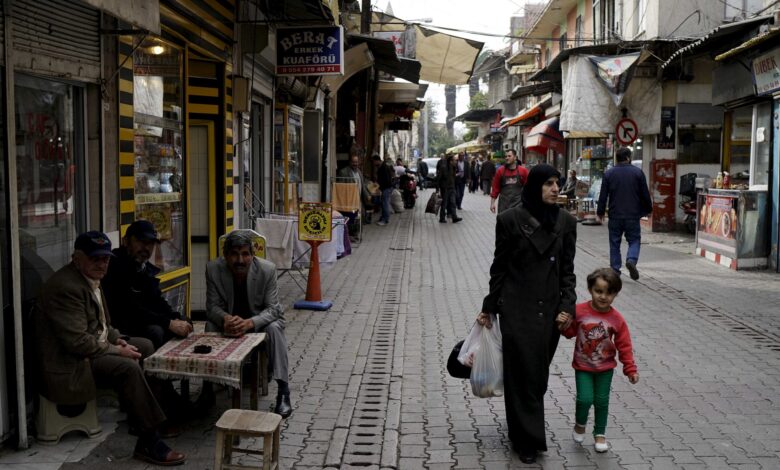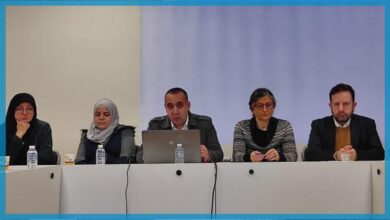Hate speech against refugees in Turkey… Daily violations in the lives of Syrians

Mezna Okidi
Despite the recognition by the member states of the United Nations of the positive contribution of refugees and migrants to inclusive growth and sustainable development, the rejection of host societies has long been accompanying waves of migration and asylum, which exposed refugees around the world to discriminatory discourses and exclusionary practices that necessitated international actions and efforts to curb them.
In the case of Syrian asylum in Turkey, and with the escape from security conditions – which are too complex for an outside spectator to understand – what exacerbated the crisis, prejudices and misleading information against the refugees, which justified the hate speech of its practitioners until it reached the daily lives of Syrians.
Racism in public and private transportation
Reem, a university student at Gaziantep University, used to take the “tramway” as a means of transportation to reach her university. Reem says that she was browsing through her phone, which is not considered one of the modern or expensive phones, as she describes, and a Turkish young man is standing next to her, addressing his friend, saying: “Look at her phone. These are the Syrians who came from the war, receiving aid, and carrying better phones than ours.”
Reem continues that the conversation between the two young men developed into describing the Syrians in insulting terms that all the passengers heard, assuming that she did not understand their words in Turkish. Reem says that “their conversation caused her a shock that made her not know what to do, and she added:” I was confused, I thought to confront them and tell them that I understood their words well, then I retreated after I was afraid that more passengers would gather against me, everyone heard them. However, no one objected.“
After this situation, Reem confirms that she avoids speaking in Arabic in transportation or showing anything indicating that she is Syrian in order to ensure that she goes to university and returns without harassment.
Distinguishing foreign cars in Turkey
In late December 2021, Turkish media published a video clip of a fist fight between Turkish citizens in a bus in the “Cekmeköy” area in Istanbul, against the background of one of them assaulting three children – some platforms identified them as Syrians and others only described them as foreigners – and demanded them By stepping down from their seat for him to sit, some passengers intervened and prevented him from being exposed to the children, ending up in the quarrel picked up by the passengers’ phones lenses.
Owners of private cars are not exempt from harassment while traveling, says Zina (30 years old), who lives in Istanbul, especially that foreigners’ cars can be easily distinguished through the car plate that begins with the letter M – a symbol for the word guest in the Turkish language – plus another letter, so Zina resorted to To register her car in the name of one of her relatives who holds Turkish citizenship, in order to obtain a Turkish car plate to avoid harassment while driving and the constant stopping of traffic patrols, she said.
Queuing fight
According to Maryam (28 years old), racist discourses do not know a specific place or time, as Syrians are exposed to them even during their simplest daily activities, as happened with her when she was shopping in a mall in Istanbul.
Maryam says: “After I finished shopping, I stood in the queue to pay for my purchases, only to be surprised by a Turkish woman who skips the queue and passes in front of me.
The Turkish lady’s argument was that she is “the owner of the country and has priority in the role,” according to Maryam. The argument ended between them after the Turkish woman called Maryam a “traitor to the homeland” who did not stay in her country to defend it.
Public places are the most common source of hate speech
With a self-justified hate speech, Syrians are subject to harassment in their daily lives and in public places.
Maria Akidi, a member of the Syrian Women’s Life Gathering and an activist in combating hate speech, tells Syria TV that through her work on social consensus projects and combating false news and stereotypes with the United Nations and other organizations, she finds that the solution to reduce hate speech against Syrian refugees begins with correcting ideas. misleading about them.
Akidi believes that “the one who interviews the Turks understands the large number of misconceptions that stir up sedition and congestion.” She added, “Even the Turks who worked with us on anti-hate speech projects were really surprised when we were clarifying some points, especially regarding the security situation in Syria.”
Hate speech in Turkey is a discourse that some groups have exploited the economic and political situation in the country to justify by attaching prejudiced judgments to Syrian refugees and spreading misleading news about them.




